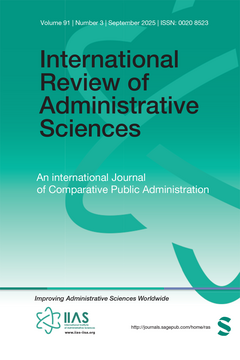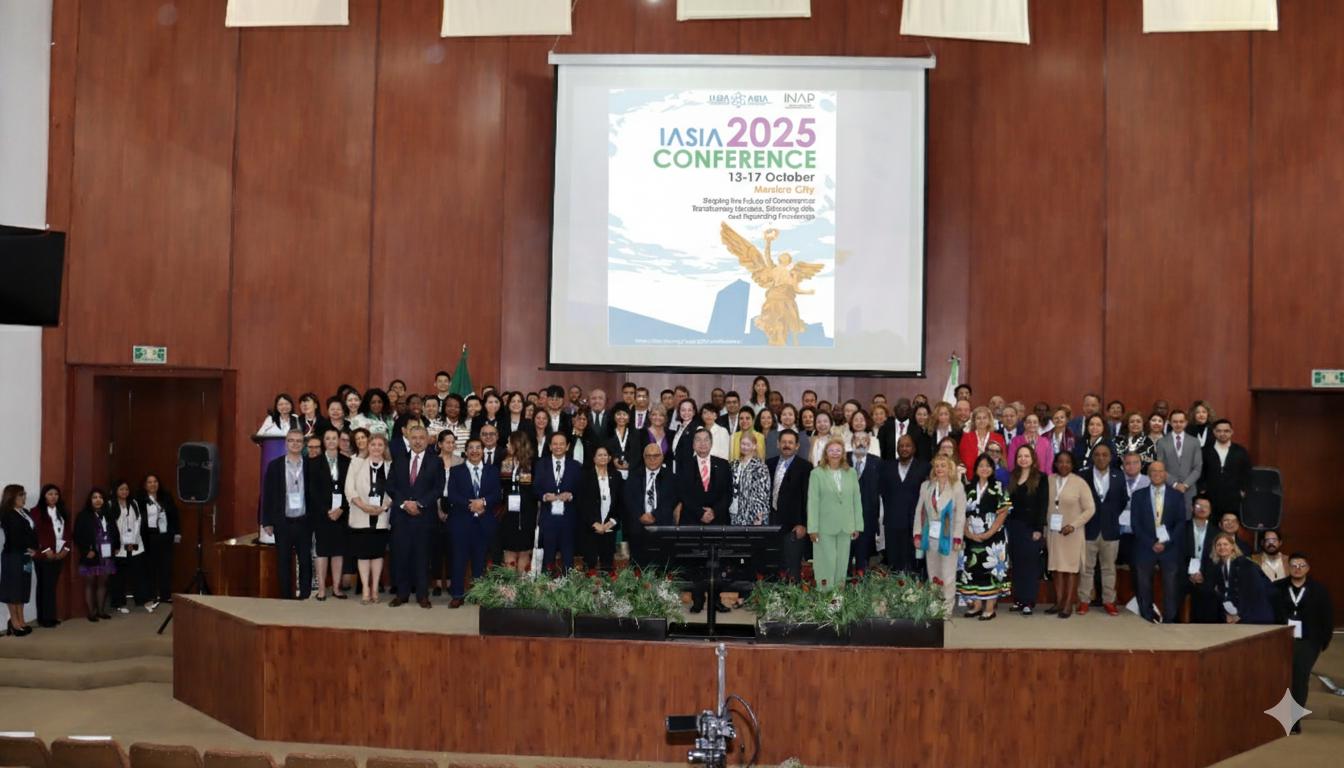 Volume 91, Issue 3 (September 2025) of the International Review of Administrative Sciences (IRAS) is now available. This issue brings together cutting-edge research on public administration, exploring themes such as administrative reforms, organizational learning, citizen engagement, and the role of digital governance.
Volume 91, Issue 3 (September 2025) of the International Review of Administrative Sciences (IRAS) is now available. This issue brings together cutting-edge research on public administration, exploring themes such as administrative reforms, organizational learning, citizen engagement, and the role of digital governance.
The issue opens with the Braibant Lecture 2025, Next Generation of Administrative Reforms: Empowering Citizens, by Andrew Massey, providing forward-looking insights into how public institutions can enhance citizen participation and strengthen governance.
The issue also includes a book review:
Local Government and Governance in Germany: Challenges, Responses and Perspectives – Hellmut Wollmann, Cham, Switzerland: Springer, 2024; 169 pp.: ISBN 978-3-031-68353-4, € 149.79.
Seven peer-reviewed research articles examine global challenges in public administration, including crisis management, e-Government development, deliberative democracy, and public sector financial reporting:
Public leaders’ organisational learning in times of recurring crisis and the role of public service motivation: a case study on local governments in Oromia Regional State, Ethiopia – Bacha Kebede Debela
Cross-country differences in implicit citizenship and servantship theories: Contrasting evidence from Germany and Taiwan – Anne Dahlweg, Yu-Wei Guo, Helen K. Liu, Rick Vogel
Empathy, stress, and coproduction: Experience of public professionals in Chinese healthcare – Yanwei Li, Hongbo Yu
e-Government development and environmental performance: Unravelling the dual mediation of regulatory enforcement and citizen participation in China – Dongmei Mu, Xueping Liang, Daifu Yang
Who supports deliberative mini-publics in a context of direct democracy? The role of trust and dissatisfaction – Daniel Kübler, Robin Gut, Andri Heimann, Nenad Stojanovic, Céline Colombo
Attempts at making public sector accrual accounting and reporting useful and useable: The preparers’ perspective – Levi Gårseth-Nesbakk, Pawan Adhikari, Tobias Polzer
Do institutional pressures influence online social and environmental disclosure in Italian healthcare organizations? – Diana Ferullo, Francisco Javier Andrades-Peña, Giuseppe Nicolò, Natalia Aversano
Together, these contributions offer valuable insights into how public institutions worldwide are adapting to complex challenges, improving governance, and fostering citizen engagement.
Explore the new issue to stay up-to-date with the latest research on public administration and governance.
About IRAS
The International Review of Administrative Sciences (IRAS) is the flagship peer-reviewed journal of the International Institute of Administrative Sciences (IIAS). Founded in 1927, IRAS is the oldest scholarly journal dedicated specifically to comparative and international public administration. The journal advances the global conversation on public governance, encourages reflection on emerging approaches, and fosters dialogue between scholars and practitioners.


